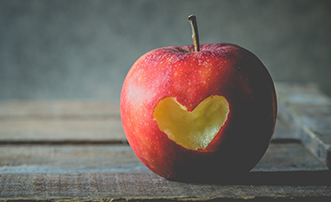Simple things like food and water can be hard to come by when disaster strikes. You may think of emergencies as short-lived events, where food and water will be readily available by emergency response agencies in the community. However, this is not always the case. By planning ahead and taking a few simple steps, you can be assured you will stay fed and hydrated through almost any emergency.
- Food: The general rule of thumb is to have a three-day supply of food for every member of your household. Choose items that don’t need to be refrigerated, heated, or need a lot of water. This may include canned or dried meat, dry cereal, and canned vegetables. Have a manual can opener handy. Pick high-energy foods like nuts and protein bars. The trick is to periodically check expiration dates on your supply.
- Water: The three-day rule also applies to water. Each person needs one gallon of water per day. Replace the supply once a year. Since water supplies rely on electricity, a simple power outage could leave you without water. Water supplies could also become unsafe for drinking during emergencies, so all the more reason storing water is a must. Determine how close you are to highways, railroads, factories, and plants which could have chemical spills.
- First Aid: Purchase a first aid kit for your home, car, and workplace if one is not available. Take training in first aid (for humans and pets), CPR, and AED. Kits and training allow you to provide immediate medical help to your loved ones during an emergency while waiting for first responders.
I have unique needs, what should I do?
- Talk to a dietitian if you have special dietary needs. Check to see what shelf-stable foods that meet your needs you can have on hand in case of an emergency. If you have special foods on hand at all times to meet your needs, make sure the supply will last up to three days.
- Consider adding extra water to your supply as certain health conditions require you to drink extra water throughout the day. Women who are pregnant, children, and those with chronic conditions may need more than the suggested gallon per day.
- Customize your first aid kit. If you are prone to certain injuries, make sure you include necessary supplies for those situations.
Goal:
Have the essentials on hand – food, water, and first aid.
Things to Do:
Food: Three-day supply of high-energy foods that don’t need special preparation.
Water: Three gallons of water per person.
First aid: Keep a kit in your home, car, and workplace. Take a first aid class.
Be Informed:
fema.gov
redcross.org/local/wisconsin
Caregivers – How can you get involved?
Add an extra supply of water for your loved one. If you are providing care during an emergency, your loved one may not be able to reach his/her supply.
Have food on hand for your loved one that meets his/her special dietary needs.
Get trained in first aid, CPR, and AED. You could be the difference between life and death for your loved one while waiting for first responders.



